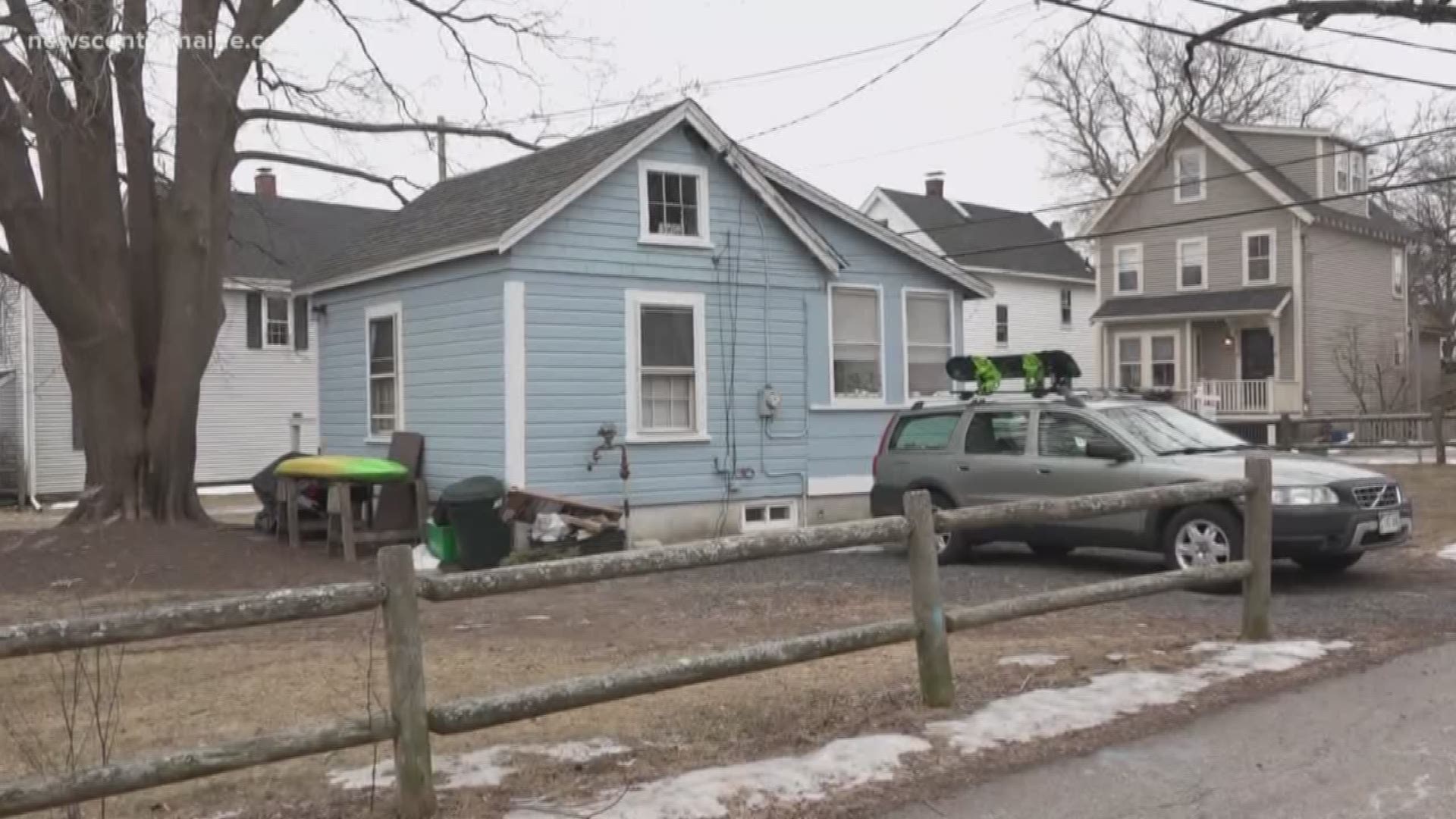PORTSMOUTH, N.H. — Behind a lichen-covered fence on a quaint Portsmouth street, in baby blue trim that’s been out of fashion for a long time, is a cottage.
It’s small -- an itty bitty cube that sits squarely under a tree.
"I can fall over in any part of the house and land in my bed," says tenant, Judson Cahl, who works at Sanders Fish Market, just down the street from the cottage he rents at 445 Marcy St.
Originally, from Kittery, Cahl says he has seen much of the area change over time and many areas he's frequented become gentrified.
Rents and home prices are more expensive than they were when he was a kid.
Still, he loves his slice of Portsmouth’s South End situated on a .34 acre lot, with a driveway off a narrow side street that leads to a lobster pound.
The people in the South End, Judson says, are friendly and will wave at anyone who passes by.
Most of the housing stock in the neighborhood is historic, with strict regulations on what can and cannot be done to it.
The blue cottage, which at one point, a long time ago used to be a candy store is a mere minutes-long walk to the water, is an exception to those rules, provided you have the right municipal approvals.
It is against this backdrop, a prime location in a city that is bursting with new restaurants, that 445 Marcy St. has gone up for sale at what some residents say is a staggering asking price, $2 million.
"This a very unusual opportunity to have a very large piece of property that you can build something new on," says Liz-Levey-Pruyn, the Realtor from RE/MAX Shoreline in Portsmouth who is responsible for selling the home.
She explained that the little blue house sits on a big grassy lot, in a neighborhood where most houses sit only a few feet apart.
A parcel that size in the South End could potentially fit two homes.
Levey-Pruyn, who has worked in the area since the late 1980s says the asking price reflects a builder's potential and Portsmouth's 2019 reality.
"Back probably in the earlier days it was a nasty neighborhood as was much of Portsmouth," she said. "There were brothels."
Brothels that many years later have been replaced by Volvos and BMWs parked in gravel driveways, some surrounded by ornate holders for plants.
Homes close by to the "candy shop cottage" lot have recently sold for $1.3 to $1.6 million dollars.
Levey-Pruyn says buyers in the neighborhood include people from Boston, New York, and Connecticut, as well as some from Portsmouth.
Longtime city residents say all that trendiness is making neighborhood flat out expensive and they are paying a literal price to remain in a community they helped build.
"I came here early in the 1990s and even before that it was a quaint seaside town," said Robin Rousseau, who lives in Market Square. "It's changed, it’s almost uncontrolled development right now."
Robin Rousseau entitled the author of a book called "Portsmouth: A Love Story"
She’s worried her city is going to be "unrecognizable" five to ten years from now.
"I call it Disneyland now where you see large tourist groups wandering the streets," she lamented.
Realtors like Liz Levey-Pruyn aren’t ignorant of that opinion.
Levey Pruyn says there is a housing problem for some workers who want to live in Portsmouth that the city is trying to address.
She cautioned, however, that the South End neighborhood may never be an inexpensive place to live ever again.
"People want to be here," she said. "I don’t see it ever turning in a downward spiral. It’s just a matter of finding enough inventory for the people that want to live there."
That is the conundrum facing Portsmouth and other communities on the Maine part of the seacoast.
Where will that inventory come from?
Will the market, as Robin Rousseau hopes, "balance itself out?"
Will a dated little blue house behind a lichen-covered fence on a street next to the ocean really sell for $2 million?

